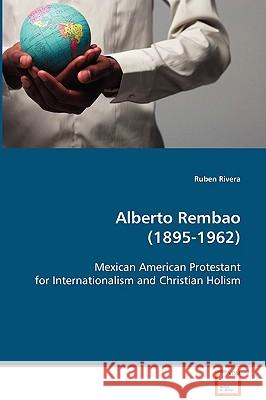Alberto Rembao (1895-1962) » książka
Alberto Rembao (1895-1962)
ISBN-13: 9783639074895 / Angielski / Miękka / 2008 / 356 str.
In 1913 Protestant missionaries working in Mexico brought a severely wounded revolutionary soldier to the United States where doctors saved his life, but had to amputate one leg. The solider was young Alberto Rembao. He went on to become one of the key architects in the development of a socially conscious Latino Protestantism in the generation preceding liberation theology. Some writers accuse Rembao and his generation, the so-called "liberal phase" of Latin American Protestantism, of acquiescing to white American missionaries and focusing on reaching Latin Americas elite with liberal bourgeois values and a utopian social gospel. This book shows that Rembao was a more complex figure. Previously unexplored but critical for understanding Rembao are the ideals of internationalism and renewed social concern that arose after World War I and became central to mainline Protestant missions and other organizations with which he worked. These ideals led Rembao to promote holistic aspects of Christianity toward a better world of peace, fraternity and justice. In the process he challenged undemocratic politics, racist U.S. immigration policies, paternalistic mission practices and more.











